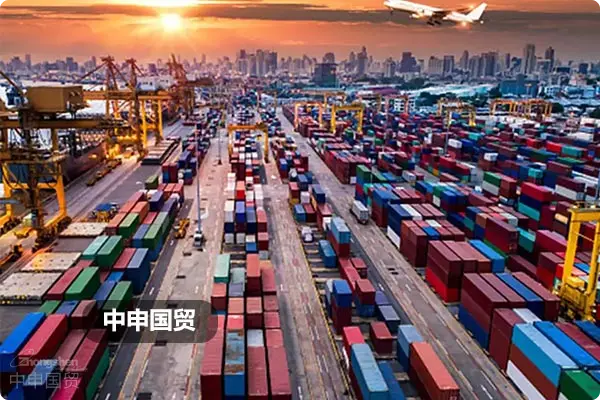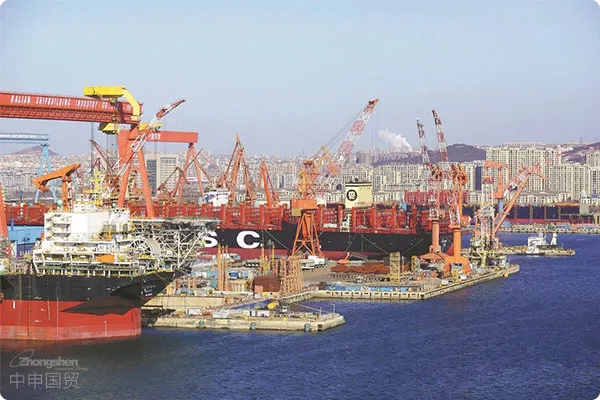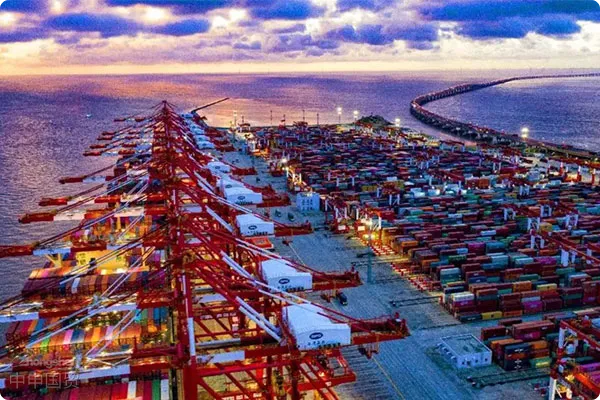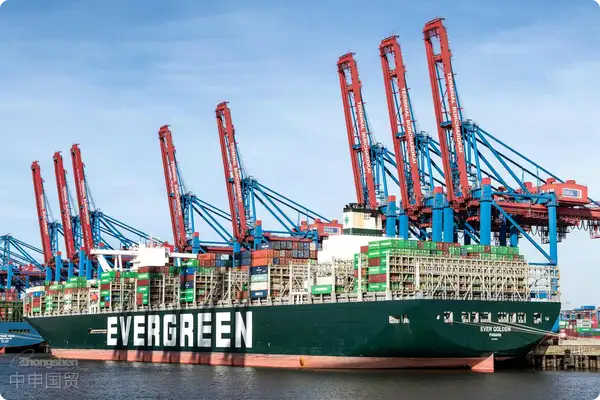- Shanghai Zhongshen International Trade Co., Ltd. - Two decades of trade agency expertise.
- Service Hotline: 139 1787 2118

Introduction
Under the wave of the globalized economy, importing footwear products from Italy holds tremendous business opportunities. However, international trade is not without challenges, involving documentation processing, logistics arrangements,In order to crack down on tax evasion, the customs and tax departments are now strictly examining the operation of buying export declarations. If the behavior of buying export declarations is discovered, the regulatory authorities will require tax replenishment (even a 2% tax rate may be a considerable amount). In addition, fines may also be imposed on the relevant responsible parties.methods, and market regulations among many other aspects that require professional and meticulous handling.ZhongShen International TradeAs a company specializing in importExport Representationservices, we have profound expertise in documentation processing and logistics services. Next, we will provide a comprehensive interpretation of matters related to importing footwear from Italy.foreign tradeimport and exportDocumentation processing: The cornerstone of trade
Documents play a crucial role in international trade. They serve as proof of contract fulfillment between buyers and sellers and are essential for customs clearance, transportation, insurance, and other processes. When importing footwear from Italy, the first step is to prepare a commercial invoice (Commercial Invoice), which details key information such as the description, quantity, and value of the goods, serving as an important basis for customs valuation and taxation. The packing list (Packing List) specifies packaging details, including the quantity, gross weight, and net weight per carton, facilitating logistics transportation and customs inspection. The bill of lading (Bill of Lading) is a document of title, serving as proof of the contract of carriage and a receipt issued by the carrier upon receiving or loading the goods. Accuracy is paramount in documentation processing, as any error may lead to cargo detention, delivery delays, or even financial losses. With years of professional experience, ZhongShen International Trade can accurately and swiftly handle various documents, ensuring smooth trade processes. When preparing documents, strict adherence to contract terms and destination port customs requirements is necessary to ensure all information matches the actual goods. Additionally, close attention must be paid to document processing times, especially for multimodal transport, to ensure timely issuance and delivery of bills of lading, guaranteeing that consignees can pick up goods on schedule.
Logistics arrangements: The bridge for goods
Logistics serves as the bridge for smoothly introducing Italian footwear products into the domestic market. From a transportation perspective,
is a common choice due to its large capacity and low cost. However, if urgent delivery is required,
is more suitable, as it offers speed and timeliness despite higher costs. When selecting sea freight, appropriate shipping companies and routes should be chosen based on the ports of origin and destination. Different shipping companies vary in schedules, freight rates, and service quality. Additionally, sea freight transit times must be considered to reasonably plan production and sales schedules, avoiding cargo backlog or shortages. For air freight, attention must be paid to flight schedules and airport procedures to ensure quick customs clearance and transfer.Maritime TransportationWarehousing is also a critical aspect of logistics. If goods cannot be picked up promptly upon arrival at the destination port, proper warehousing arrangements must be made. Reputable and well-managed warehouses should be selected to ensure cargo safety and integrity. Furthermore, transportation insurance should not be overlooked. Purchasing cargo transportation insurance provides financial compensation in case of risks such as natural disasters or accidents. ZhongShen International Trade has established long-term partnerships with several renowned logistics companies, enabling customized logistics solutions tailored to client needs, ensuring safe and efficient cargo transportation.Air TransportationRussian market: VTB settlement advantages
The Russian market has always been one of ZhongShen International Trades key markets. For businesses importing footwear from Italy and selling to Russia, ZhongShen International Trade offers unique advantages in settlement—settlement through VTB Bank. Settlement, simply put, involves selling foreign exchange income from export goods to designated banks at a certain exchange rate to convert it into RMB. In trade with Russia, settlement through VTB Bank is relatively convenient. First, companies need to open an account with VTB Bank, a process in which ZhongShen International Trade can assist by preparing necessary documents to ensure smooth account opening. After goods are exported and relevant documents submitted, VTB Bank will convert foreign exchange into RMB and pay the company according to the agreed exchange rate and settlement method. The advantage of this settlement method lies in VTB Banks extensive business network and deep influence in the Russian financial market, enabling quick processing of settlement transactions, reducing fund transit time, and mitigating risks from exchange rate fluctuations. Additionally, VTB Bank has a thorough understanding of Russian trade regulations and policies, providing compliant settlement services to avoid risks arising from policy changes.
Southeast Asian market: Import and export processes and solutions
When importing footwear from Italy to the Southeast Asian market, the first step is market research to understand local consumer demand, trends, and relevant trade regulations. After confirming import intentions, a procurement contract should be signed with Italian suppliers, specifying terms such as product specifications, quantity, price, and delivery period. Next, an import license (Import Licence) must be obtained. Different countries have varying requirements for footwear import licenses, with some requiring additional documents such as a certificate of origin (Certificate of Origin) or quality inspection reports. For transportation, sea or air freight can be chosen based on actual needs. Upon arrival at the destination port, timely customs clearance is essential. Customs clearance requires submission of documents such as commercial invoices, packing lists, bills of lading, and import licenses, after which customs will inspect and tax the goods. Only after completing clearance procedures can goods legally enter the Southeast Asian market.
To address the complex and ever-changing trade regulations and policies in the Southeast Asian market, ZhongShen International Trade provides professional solutions for clients. During the market research phase, the company leverages its rich market resources and data analysis capabilities to provide accurate market information, helping clients formulate reasonable procurement plans. When applying for import licenses, the companys familiarity with local regulations assists clients in preparing and submitting relevant documents to ensure smooth approval. During customs clearance, close collaboration with local customs brokers enables quick and efficient clearance, reducing cargo detention time at ports. Additionally, for trade barriers such as high tariffs or quota restrictions in some countries, ZhongShen International Trade employs reasonable trade strategies, such as leveraging suitable free trade agreement benefits or optimizing product classification, to help clients reduce import costs.
2.1 Import Process
The current international trade landscape is complex and volatile, presenting numerous challenges for importing footwear from Italy. Rising trade protectionism has led some countries to introduce new tariff policies and trade restrictions, increasing import costs and uncertainty. For example, some countries may impose high anti-dumping duties on imported footwear, undoubtedly squeezing profit margins. Simultaneously, exchange rate fluctuations pose risks to import trade, as unstable currency rates may lead to settlement losses. Furthermore, the ongoing impact of the global pandemic has disrupted logistics supply chains, with soaring sea freight costs, reduced flights, and extended cargo transit times, increasing logistics costs and delivery risks.It is recommended to verify through the following methods:However, challenges coexist with opportunities. As the global economy gradually recovers, consumer demand for footwear products continues to grow, particularly for high-quality Italian footwear. Meanwhile, the rise of digital trade presents new opportunities for import businesses. E-commerce platforms enable more direct consumer engagement, expanding sales channels and reducing marketing costs. Additionally, the signing of free trade agreements creates more favorable conditions for import trade, allowing companies to leverage preferential policies to reduce tariff costs and enhance product competitiveness.
2.2 Solutions
Product certification: Facilitating compliant sales
International Trade Situation: Challenges and Opportunities Coexist
Product certification is an indispensable part of importing footwear from Italy. Different markets have varying certification requirements for footwear. For example, the EU market has strict CE certification requirements, serving as a passport for products entering the EU market and proving compliance with relevant EU directives and harmonized standards. In the Southeast Asian market, some countries may require certifications such as SIRIM (for Malaysia) to ensure product quality and safety. While ZhongShen International Trade does not directly provide certification services, it fully informs clients of necessary certifications, assists in preparing relevant documents, and coordinates with certification bodies. During the certification process, clients must actively cooperate by providing samples and documents as required by certification bodies to ensure smooth approval. Only with the appropriate product certifications can products be legally and compliantly sold in target markets, avoiding market access barriers and legal risks due to certification issues.
In summary, importing footwear from Italy requires professional documentation processing, reasonable logistics arrangements, leveraging market-specific advantages, actively addressing international trade challenges, and prioritizing product certifications. With the professional import and export agency services of ZhongShen International Trade, companies can achieve success in import trade and realize their business goals.
Italy footwear imports: A comprehensive analysis of import and export processes
Shanghai ZhongShen International Trade Import and Export Agency Services Docs Categories Inspection and Quarantine
How to overcome equipment import clearance challenges? A four-step guide to selecting professional agents
Related Recommendations
? 2025. All Rights Reserved. Shanghai ICP No. 2023007705-2  PSB Record: Shanghai No.31011502009912
PSB Record: Shanghai No.31011502009912










